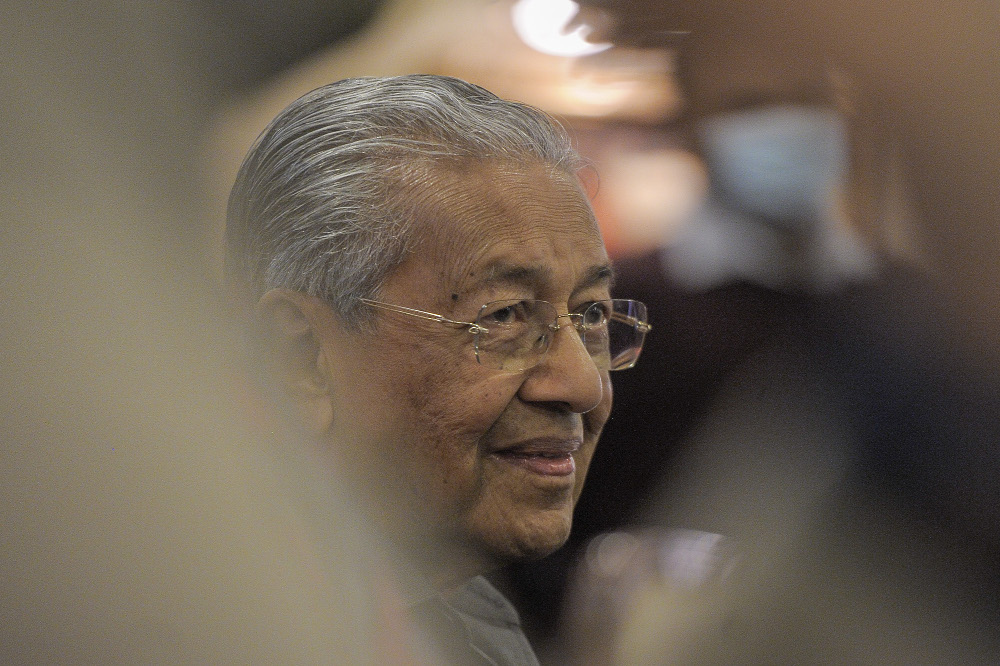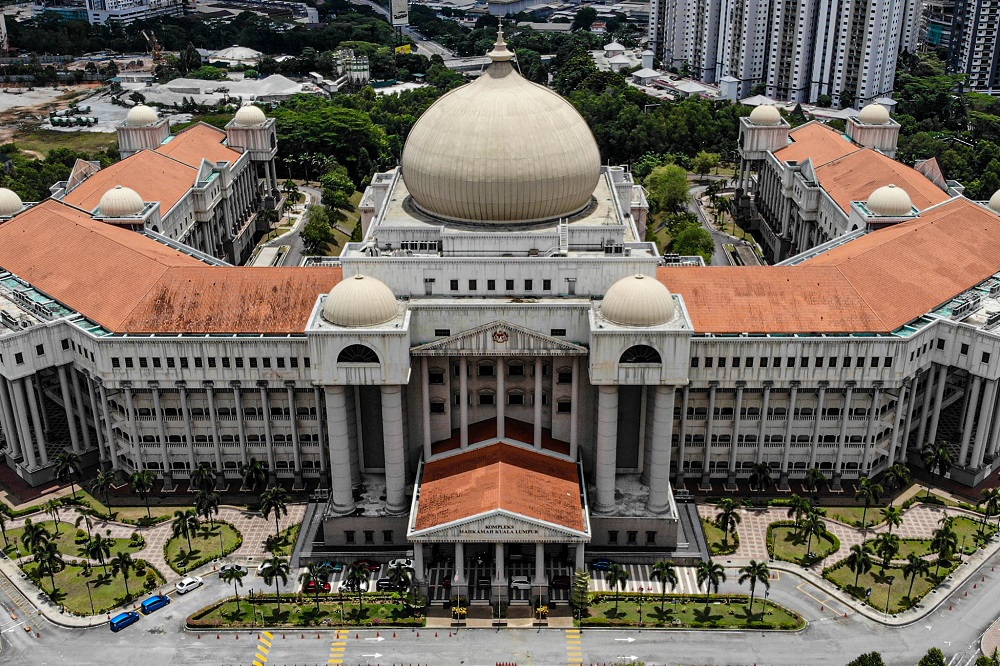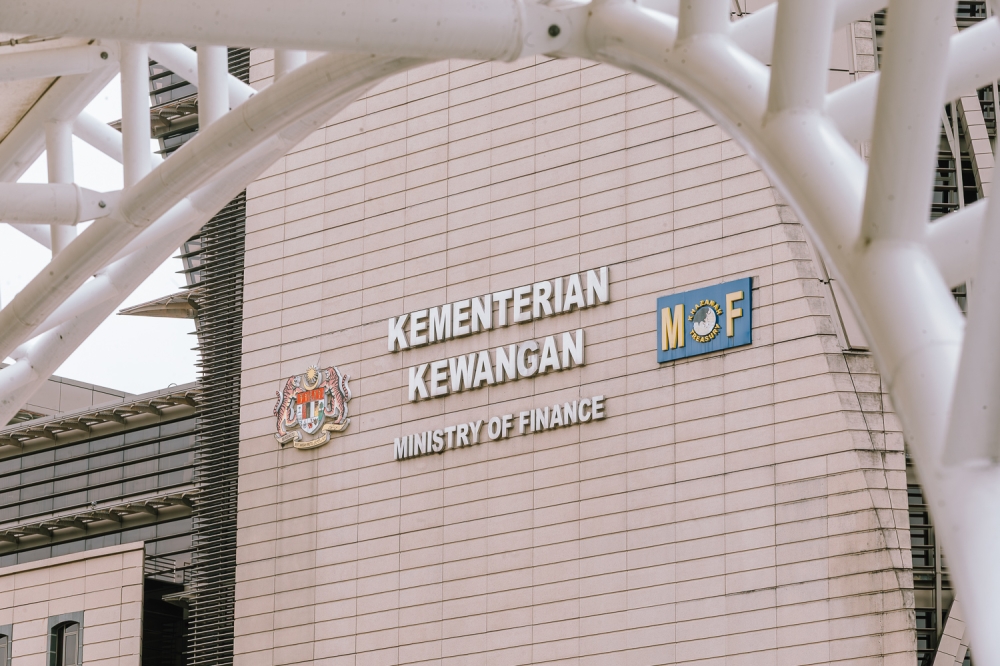KUALA LUMPUR, Feb 18 — The High Court today allowed Tun Dr Mahathir Mohamad and four other lawmakers from his Parti Pejuang Tanah Air (Pejuang) to be party to a constitutional court challenge regarding the Yang di-Pertuan Agong’s discretion to refuse to declare an Emergency.
When contacted by Malay Mail, lawyer Muhammad Rafique Rashid Ali who represented Dr Mahathir and the four lawmakers confirmed that the High Court has allowed his clients to be interveners in the lawsuit.
Others who were seeking to be interveners in the lawsuit were similarly allowed to do so, he said.
“Justice Mariana decided that since it is a public interest and constitutional issue, the interveners had legitimate and real interest to be allowed to intervene,” he said, following a hearing earlier today before High Court judge Datuk Seri Mariana Yahya through Zoom video-conferencing.
The hearing was on the applications by 10 individuals and organisations — including Langkawi MP and Pejuang chairman Dr Mahathir — to become part of the lawsuit.
The four Pejuang lawmakers who were seeking to be interveners are Pejuang president and Jerlun MP Datuk Seri Mukhriz Mahathir, Pejuang secretary-general and Kubang Pasu MP Datuk Amiruddin Hamzah, Sri Gading MP Datuk Shahruddin Md Salleh, as well as Pejuang deputy president and Dewan Negara lawmaker Datuk Marzuki Yahya.
The lawsuit that Dr Mahathir and the four others from Pejuang successfully joined was filed by lawyer Syed Iskandar Syed Jaafar against the Malaysian government.
Separately, lawyer Mohamed Haniff Khatri Abdulla who was representing some of the other interveners in the lawsuit confirmed that the High Court had allowed all those seeking to be part of the case.
“All the proposed interveners allowed to intervene and named as defendants as follows,” he said, listing those now added to Syed Iskandar’s lawsuit as defendants as the Association of Muslim Lawyers (PPMM), lawyer Mohd Khairul Azam Abdul Aziz, lawyer Malcolm Fernandez, lawyer Nazirah Abdul Ghani, Centre for a Better Tomorrow, Dr Mahathir, Mukhriz, Amiruddin, Shaharuddin and Marzuki.
Haniff represented PPMM, Mohd Khairul Azam, Malcolm, and Nazirah.
Both Rafique and Haniff said that the High Court has fixed March 16 for case management on this case.
In Syed Iskandar’s lawsuit filed on October 30, 2020, the lawyer noted the Yang di-Pertuan Agong’s October 25 refusal to declare an Emergency as sought by the prime minister on October 23, describing this as the ruler’s “rejection of the prime minister’s advice” for an Emergency to be declared.
Syed Iskandar had in court papers claimed that the Yang di-Pertuan Agong had exercised his functions in a manner inconsistent with the Federal Constitution’s Article 40 and Article 150 when declining to act on the advice of the prime minister or Cabinet.
In his lawsuit, Syed Iskandar posed two questions of constitutional and public importance for the court to decide, including whether the Yang di-Pertuan Agong has an “unfettered discretion” not to declare an Emergency despite the advice of the prime minister or Cabinet for an Emergency declaration, based on a true construction of Article 40 and Article 150 of the Federal Constitution.
The second question was on whether whether Act A514 (Constitution (Amendment) Act 1981) which amended the Federal Constitution’s Article 150 by adding clauses (8) and (9) is violative of the basic structure of the Federal Constitution, when the Federal Constitution’s Article 4(1) is taken into account.
Months after the October 2020 events and the filing of Syed Iskandar’s lawsuit, the Yang di-Pertuan Agong on January 12 announced an Emergency on Malaysia, just a day after Prime Minister Tan Sri Muhyiddin Yassin presented the ruler with the Cabinet’s advice for an Emergency to be declared.
The Proclamation of Emergency nationwide was gazetted on January 12 and deemed to be in effect from January 11 to August 1, while the Emergency (Essential Powers) Ordinance 2021 — which suspends all elections and the sitting of Parliament — was gazetted on January 14 and also deemed to have taken effect from January 11 onwards.




















